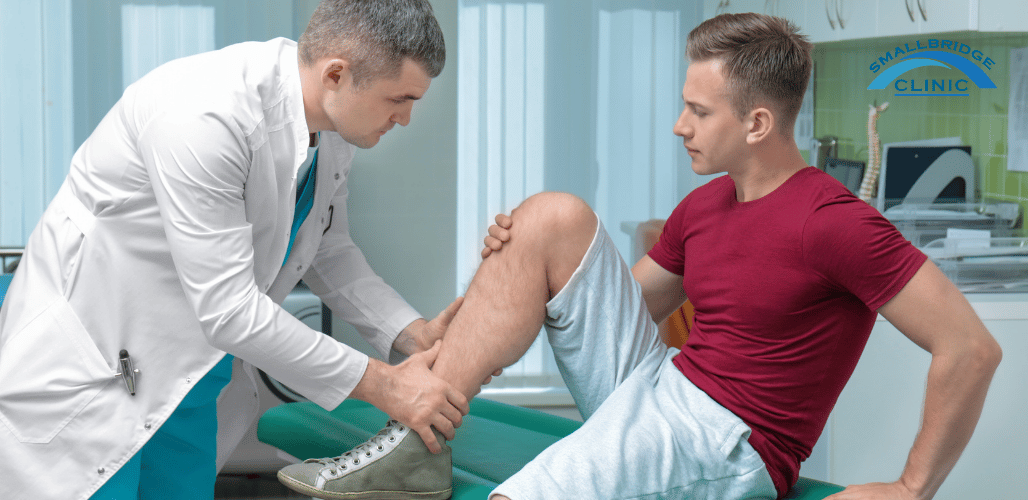
Orthopaedics Consultant Outpatient Service
Orthopaedics consultant outpatient services involve the diagnosis, treatment, and management of musculoskeletal conditions by specialist orthopaedic consultants. These services cater to individuals with various bone, joint, muscle, ligament, and tendon issues, providing comprehensive care from initial assessment through to treatment and follow-up. Here is an overview of orthopaedics consultant outpatient services under following grant of CQC registration:
Key Components of Orthopaedics Consultant Outpatient Services
-
Initial Consultation and Assessment:
- Medical History: Detailed discussion of the patient’s medical history, symptoms, and any previous treatments or surgeries.
- Physical Examination: Thorough examination of the affected area to assess pain, range of motion, strength, and any physical abnormalities.
- Diagnostic Imaging: Use of X-rays, MRI, CT scans, and ultrasound to obtain detailed images of the bones, joints, and soft tissues.
-
Diagnosis:
- Evaluation of Diagnostic Tests: Analysis of imaging results and other diagnostic tests to determine the underlying cause of the patient’s symptoms.
- Discussion of Findings: Explanation of the diagnosis to the patient, including the nature and severity of the condition.
-
Treatment Planning:
- Non-Surgical Treatments: Recommendations for conservative treatments such as physical therapy, medications, bracing, or injections.
- Surgical Options: Discussion of surgical interventions if necessary, including the benefits, risks, and expected outcomes.
- Individualized Care Plan: Development of a personalized treatment plan tailored to the patient’s specific needs and goals.
-
Surgical Interventions:
- Preoperative Planning: Detailed planning for surgical procedures, including preoperative assessments and patient education.
- Surgical Procedures: Performing surgeries such as joint replacements, arthroscopy, fracture repair, and corrective surgeries for deformities.
- Postoperative Care: Follow-up appointments to monitor recovery, manage pain, and ensure proper healing.
-
Rehabilitation and Follow-Up:
- Physical Therapy: Referral to physical therapy for rehabilitation exercises to restore function, strength, and mobility.
- Ongoing Monitoring: Regular follow-up appointments to track progress, adjust treatment plans, and address any complications or concerns.
- Long-Term Management: Strategies for long-term management of chronic conditions, including lifestyle modifications and preventive care.
Conditions Treated by Orthopaedics Consultants
-
Joint Disorders:
- Osteoarthritis, rheumatoid arthritis, and other forms of arthritis.
- Joint injuries such as dislocations and labral tears.
-
Bone Fractures and Trauma:
- Simple and complex fractures.
- Stress fractures and non-unions.
-
Spine Conditions:
- Herniated discs, spinal stenosis, and degenerative disc disease.
- Scoliosis, kyphosis, and other spinal deformities.
-
Soft Tissue Injuries:
- Ligament injuries such as ACL tears.
- Tendon injuries including rotator cuff tears and Achilles tendonitis.
-
Sports Injuries:
- Management of acute and chronic sports injuries.
- Prevention and rehabilitation of sports-related conditions.
-
Pediatric Orthopaedics:
- Congenital deformities such as clubfoot and hip dysplasia.
- Growth plate injuries and pediatric fractures.
-
Orthopaedic Oncology:
- Diagnosis and treatment of bone tumors and soft tissue sarcomas.
Benefits of Orthopaedics Consultant Outpatient Services
-
Specialized Care:
- Access to highly trained and experienced orthopaedic consultants who specialize in diagnosing and treating complex musculoskeletal conditions.
-
Comprehensive Management:
- Integrated approach to care, combining medical, surgical, and rehabilitative treatments to achieve optimal outcomes.
-
Advanced Diagnostic Tools:
- Utilization of the latest imaging and diagnostic technologies to accurately diagnose and plan treatments.
-
Personalized Treatment Plans:
- Tailored treatment plans based on the individual needs and goals of the patient.
-
Improved Outcomes:
- Focus on achieving the best possible functional outcomes and quality of life for patients.
Process of Receiving Orthopaedics Consultant Outpatient Services
-
Referral:
- Patients are often referred by their primary care physician or another specialist to an orthopaedic consultant for further evaluation.
-
Initial Appointment:
- During the initial visit, the consultant conducts a thorough assessment and discusses the patient’s symptoms and medical history.
-
Diagnostic Testing:
- Diagnostic tests are ordered as needed to obtain a clear understanding of the condition.
-
Treatment Discussion:
- The consultant discusses the diagnosis and potential treatment options with the patient, considering both surgical and non-surgical approaches.
-
Implementation of Treatment Plan:
- The agreed-upon treatment plan is implemented, which may include medications, physical therapy, or surgery.
-
Follow-Up and Rehabilitation:
- Regular follow-up appointments to monitor progress and adjust the treatment plan as necessary, along with coordinated rehabilitation services.
Choosing the Right Orthopaedics Consultant
- Qualifications: Ensure the consultant is board-certified and has extensive experience in treating specific orthopaedic conditions.
- Patient Reviews: Look for testimonials or reviews from other patients to gauge the quality of care provided.
- Comprehensive Services: Choose a provider that offers a full range of diagnostic, treatment, and rehabilitative services.
- Communication: Select a consultant who communicates clearly, listens to patient concerns, and involves patients in the decision-making process.
Orthopaedics consultant outpatient services provide specialized and comprehensive care for a wide range of musculoskeletal conditions. By offering advanced diagnostics, personalized treatment plans, and integrated rehabilitation, these services aim to improve patient outcomes and enhance quality of life.
